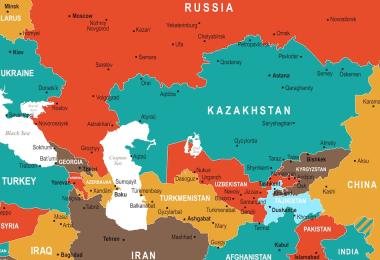Wine queens hold court throughout Europe, representing the winegrowing and producing traditions of their local areas, a tradition that began in Germany. Today, judging the German Wine Queen can be a deafening experience.
Thirteen regional wine queens compete for the title, and their supporters descend upon the elections waving banners, blowing whistles and chanting their names. It’s not unlike a cross between the World Cup and the Hunger Games.
Humble beginnings
At first glance, the election of the German Wine Queen looks like a beauty competition. The 13 regional wine queens – backstage at the Saalbau in Neustadt an der Weinstrasse in the Rhineland Palatinate, where the wine queen began – sipped Sekt as they waited to be made up.
And, indeed, there was a time when the German Wine Queen was a girl in traditional dress who kept her glass raised and her mouth shut. Today, however she is a quasi-official ambassador who represents the German wine trade both domestically and internationally. Former wine queens have become successful winemakers, wine marketers – and even government ministers.
Finally, Monika Reule, head of the German Wine Institute (DWI) walked out on the stage, followed by four judges: Professor Dr Monika Christmann of Geisenheim University; Werner Engelhard, a trade magazine editor; myself; and reigning queen Nadine Poss. One by one the contestants introduced themselves and endured a blizzard of technical wine questions in both German and English.
When compere Holger Wienpahl appeared the televised portion began. A chef brought out dishes, whose mouthwatering smells wafted over the audience, and the contestants chose a wine to match. Then was a game to test their knowledge of Germany, and an improvised speech to be delivered.
It was relentless.
And that was just the semi-final. A week later, the six finalists did it all again, live on public broadcaster SWR. They were asked about winemaking, wine history, wine-matching. The 70-strong jury took notes, before delivering their verdict electronically. “We don’t let the television audience vote,” says an organiser. “They would just vote for the prettiest girl. The German Wine Queen has to be chosen by experts.”
When local girl Janina Huhn won, the crowd went wild.
The evolution
“In 1987 I joined the jury for the election and I thought it was quite interesting, but very basic, very old fashioned,” says Wolfgang Junglas, SWR television journalist. Junglas told his director it could be turned into compelling television. “Being public television, they reacted immediately,” he says drily. “Ten years later, we had a program.”
Junglas, head of Germany’s wine journalist association, has written the history of the German Wine Queen. He says its origins probably lie in ancient harvest traditions, and might have stayed there, except that in 1931 the German wine market was in crisis. “Wine was sold for less money than the production cost, and the consumption was only 3 L per head – in France it was 153 L,” he says.
Daniel Meininger – founder of Meininger Verlag, which publishes this magazine – had an idea: find a good-looking girl and call her a wine queen. “The first queen was Ruth Bachroth, the daughter of the state director from Pirmasens,” says Junglas.
From the next year onwards until the war, a local Palatinate girl was elected. The modern competition began in 1949, with the involvement of the German Wine Institute. Other regions gradually joined, making it a truly national competition. “After the war, Germans were hungry for entertainment and wine began to play a more important role,” says Junglas. “People were so happy to still be alive.” He says he has pictures of the wine queen standing on a lorry in Berlin, pouring free wine.
For a long time, the queen simply did as she was told – and then came the women’s movement. “From the late 1970s onwards they said they didn’t want to wear a dirndl any more, and they wanted to write their own speeches,” says Junglas, who adds that in the early days there were no options in wine for women, as they couldn’t study winemaking or wine-related subjects. “Today a lot of the wine queens are probably winemakers with degrees.”
Not only that, but Junglas says two wine queens went on to become state ministers, while another – Julia Klöckner, German Wine Queen 1995 – is the deputy federal chair of the CDU, the party of Angela Merkel.
Janina Huhn, the 2014/15 German Wine Queen, comes from Bad Dürkheim (among its claims to fame: the largest wine barrel in the world). In 2012 it occurred to her that “being a wine princess would be a great opportunity to do something about my passion for the wines of Bad Dürkheim,” she said, explaining that at the village level, you apply to be princess, like applying for a job. Huhn discovered she enjoyed the wine tastings and talks, so put herself forward for the Rhineland Palatinate wine queen election, which she won. “It was really intensive,” she says, adding she had around 200 engagements throughout Germany, including opening wine festivals, moderating panels and giving speeches, all while finishing her history studies at university.
The regional wine queens are automatically in the running to compete for title of German Wine Queen. Huhn says she knew that if she won, important doors would open, so she immersed herself in study, including a three-day seminar with the WSET in London. Almost the minute she was crowned by departing queen Nadine Poss, the media besieged Huhn – giving her a taste of what was to come. Speaking a few days after her coronation, she said, “We had a party until five in the morning, and at seven o’clock the first phone call came for the first interview.”
By September 2015, Huhn will have had around 250 engagements in Germany, Poland, France, China and Canada, among other countries. She will have earned a per diem of €80.00 ($102.00) for each day she works in Germany, and €100.00 per day when travelling internationally. She will have had no life, apart from wine.
Nadine Poss, the departing queen, slipped quietly back into working at her family winery, Weingut Poss, in the Nahe, and is now thinking about her next steps. She said the constant travel had been exciting, adding she always had three different bags packed and ready, so she could change quickly. “There’s no time for family and friends.”
Poss usually travelled alone, although there would be someone in each city to meet her. Her ‘princesses’ – the two runners up – had about 80 appointments each per year. Poss said wherever she travelled, people were interested to hear that the German Wine Queen isn’t a beauty pageant winner, but a wine ambassador. She added that it’s the Germans themselves who struggle with the role. “A lot of people remember the wine queen from when she was wearing the dirndl,” she says. “Especially in Berlin, people think the wine queen is just a pretty girl.”
The perception problem she did face, however, was dealing with prejudices about German wine. “People think German wine is sweet – you are confronted by that everywhere,” she says. “Whether it’s China or New York or Canada, you have to explain that Germany has a higher percentage of dry wine.”
An important role
Ernst Bücher, the DWI’s communications manager, says the wine queens are becoming increasingly important for German wine. “She’s able to communicate better to the younger generations.”
Bücher thinks the role has become more sophisticated in tandem with the evolution of the German wine industry itself. The mainstream German media now pays more attention to the election, and the role is increasingly formal.
“They get very high quality invitations,” says Bücher. “They get invitations from the federal ministry and sometimes even meet the Chancellor [Angela Merkel].” Before they’re sent out into the world, the DWI gives the queen and her princesses on-camera and speech training. “They get some styling training, but most of them don’t really need it anymore,” says Bücher, adding that more than two-thirds of them have been to university.
Given how important the role has become and the doors that it opens, is it fair to restrict it to women? Could there ever be a German Wine King?
“No,” says Bücher swiftly and firmly. “The German Wine Queen will always be a queen. There are no thoughts about a prince. Or a husband.”
Junglas says a wine king wouldn’t work. “The magic doesn’t work with young men,” he explains. “They’re not charming. And not prepared to suffer.”
Suffer?
Junglas gives the example of a 2013 trip that Nadine Poss undertook: she arrived in Hong Kong on an early morning flight from Vancouver, and then spent the day doing English language tastings at Vinexpo before heading out to an evening function, where she gave a speech. “These queens are really competent,” he says. “It’s the only case where young people spend a lot of time promoting not only their own project, but the whole branch. They do it because they want to help all German wine producers.”
And German wine producers can be thankful for the competition’s evolution. The young women representing them are essentially wine professionals, as knowledgeable about German wines and wine production as they are polished in their appearance and delivery. It’s marketing genius; something obviously not lost on the many countries (and German industries from dairy to asparagus) that have followed suit.








